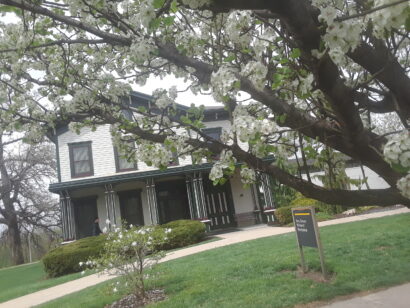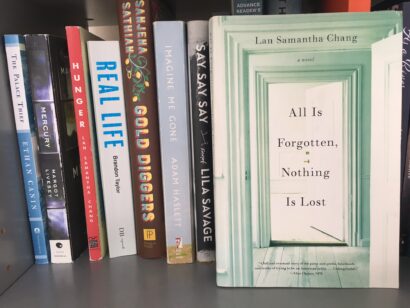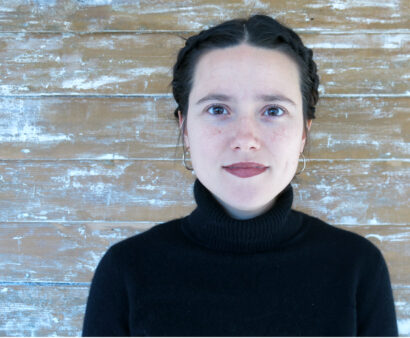 MLF Chapter & Verse
MLF Chapter & Verse
The Manchester Literature Festival Blog
Blog #2: Throw A Rock, Hit A Poet by Anna Polonyi
Anna Polonyi is a French-American-Hungarian writer and journalist. She is the author of the poetry chapbook Wayword, written on the Camino de Santiago. Her creative writing has been published by Harvard Advocate, Bastille Magazine, Global Geneva, Two Words For and Belleville Park Pages. She holds an M.F.A in fiction from the Iowa Writers’ Workshop and teaches creative writing at the Iowa Young Writers’ Studio. She’s currently working on a memoir on growing up as a “Third Culture Kid.” She was appointed by Manchester Literature Festival and Manchester City of Literature to one of our first Virtual Writer in Residence posts during Manchester Festival of Libraries.
Anna will premiere the work created during her residency in a joint event with our other Virtual Writer in Residence, Alicia Sometimes, during #MLF21 in October. Today, to mark the end of her residency at Central Library, Anna shares some writing advice from Iowa. Her first piece on what it means to be a virtual resident is available here.

Iowa City is the kind of place where you’re likely to run into someone you know twice in the same day. It rarely makes it onto a double-paged map of the United States. But walk into any bookshop anywhere in the country and you’re likely to find a smattering of recent titles penned by writers who have lived here.
“Throw a rock, hit a poet,” someone told me when I first moved to Iowa City. The sheer density of writers really is astounding, and though the list could take up an entire blog post (or book), I’ll rattle off a few names: Kurt Vonnegut, T.C. Boyle, Raymond Carver but also Joy Harjo, Rita Dove, Sandra Cisneros, and contemporary rising stars like Garth Greenwell, Carmen Maria Machado and Yaa Gyasi.
But more than publishing, Iowa City is also where writers learn from other writers: the reason that brought me here was the Iowa Writers’ Workshop, the country’s oldest graduate program in creative writing. Across the street, I found the International Writing Program, which hosts writers from all over the world each fall. Prairie Lights, the local bookstore a few blocks further down, runs so many readings that it has become a de-facto second living room for writers in town. In the hottest months, a number of summer schools and camps meet, including the Iowa Young Writers’ Studio where I teach.

Here’s four pieces of advice on writing from this hot-bed of transmission, drawn from writers currently or formerly based in Iowa City:
1. “A story is a way to say something that can’t be said any other way, and it takes every word in the story to say what the meaning is. You tell a story because a statement would be inadequate.” Short story writing virtuoso and brilliant grouch, Flannery O’Connor gave a series of talks in her short life, collected in Mystery and Manners: the lectures are refreshingly down-to-earth, insightful, opinionated and heartfelt.
2. “Good fiction…sets off a vivid and continuous dream in the reader’s mind.” John Gardner’s book The Art of Fiction is a classic reference in creative writing workshops. Though he’s been criticized for being arch, he’s my second favorite literary grouch (after O’Connor). His explanation of psychic distance is the best I’ve found yet. Even if you don’t agree with his judgments, his book is excellent fodder to get you thinking about why you don’t agree.
3. “When you create a character, give them something that you, the author, have in common. Then give them something that you definitely don’t have in common.” This very concrete suggestion on how to use real life to make your fiction come alive is one of many gems I found in Margot Livesey’s The Hidden Machinery. Reading these essays is like being in seminar with Margot, where she opens the hood on a number of classics and lesser known works, to see how good literature is made.
4. Play the long game. Lan Samantha Chang’s All is Forgotten, Nothing is Lost is not a craft book. But this slim novel feels like a must-read for writers trying to define what success means to them. Chang is the director of the Iowa Writers Workshop, and the book felt to me like a gentle warning to her students: stop comparing yourselves and do the work you are called to do.
